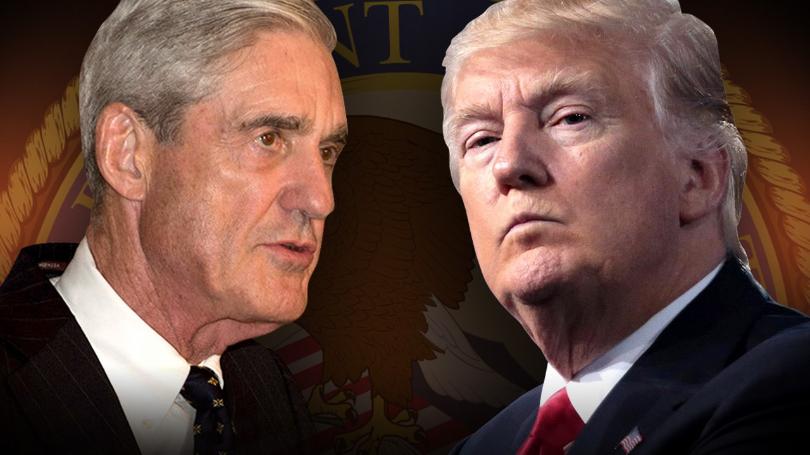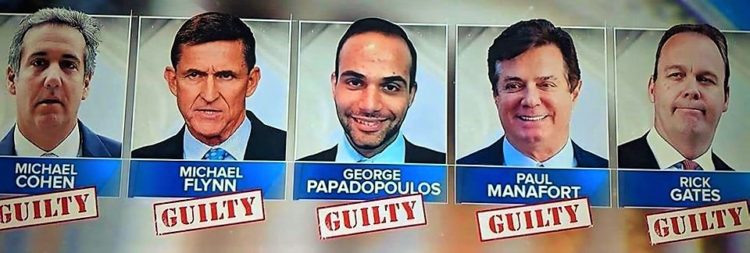The investigation led by Robert Mueller found that neither President Trump nor any of his aides conspired or coordinated with the Russian government’s 2016 election interference, according to a summary of the special counsel’s findings made public on today by Attorney General William Barr.
The summary also said that the special counsel’s team lacked sufficient evidence to establish that Trump illegally obstructed justice, but added that Mueller’s team stopped short of exonerating Trump.
“While this report does not conclude that the president committed a crime, it also does not exonerate him,” Barr quoted Mueller as writing.
{READ BARR LETTER TO CONGRESS}
Barr delivered the summary of the special counsel’s finding to Congress this afternoon, just days after the conclusion of a sprawling investigation into Russia’s attempts to sabotage the 2016 election and whether Trump or any of his associates conspired with Moscow’s interference.
But congressional Democrats have demanded more, and the release of the key findings could be just the beginning of a lengthy constitutional battle between Congress and the Justice Department about whether Mueller’s full report will be made public.
Democrats have also called for the attorney general to turn over all of the special counsel’s investigative files.
The Russia investigation has buffeted the White House from the earliest days of the Trump administration, with numerous current and former aides to Trump brought for questioning to the special counsel’s warren of offices in a plain office building in downtown Washington.
F.B.I. agents fanned out across the nation and traveled to numerous foreign countries.
Witnesses were questioned by members of Mueller’s team at airports upon landing in the United States.
Ultimately, a half-dozen former Trump aides were indicted or convicted of crimes, most for conspiracy or lying to investigators.
Twenty-five Russian intelligence operatives and experts in social media manipulation were charged last year in two extraordinarily detailed indictments released by the special counsel.
The inquiry concluded without charging any Americans for conspiring with the Russian campaign.
The report will bring closure for some who have obsessed over the myriad threads of a byzantine investigation.
A cottage industry of Mueller watchers has spent months on social media and cable news debating thorny constitutional issues, spinning conspiracy theories and amassing encyclopedic details about once-obscure figures — Carter Page, Konstantin V. Kilimnik, George Papadopoulos and others.
How many minds it changes is another matter.
Opinions have hardened over time, with many Americans already convinced they knew the answers before Mueller submitted his conclusions.
Some believe that the special counsel’s previous indictments, twinned with voluminous news media reporting, have already shown a conspiracy between the Trump campaign and the Kremlin.
Some believe that the investigation is, as Trump has long described it, a “witch hunt.”
Mueller will not recommend new indictments ending speculation that he might charge some of Trump’s aides in the future.
The Justice Department’s general practice is not to identify the targets of its investigations if prosecutors decide not to bring charges, so as not to tarnish their reputations.
Rod Rosenstein, the deputy attorney general, emphasized this point in a speech last month.
“It’s important,” Rosenstein said, “for government officials to refrain from making allegations of wrongdoing when they’re not backed by charges that we are prepared to prove in court.”

